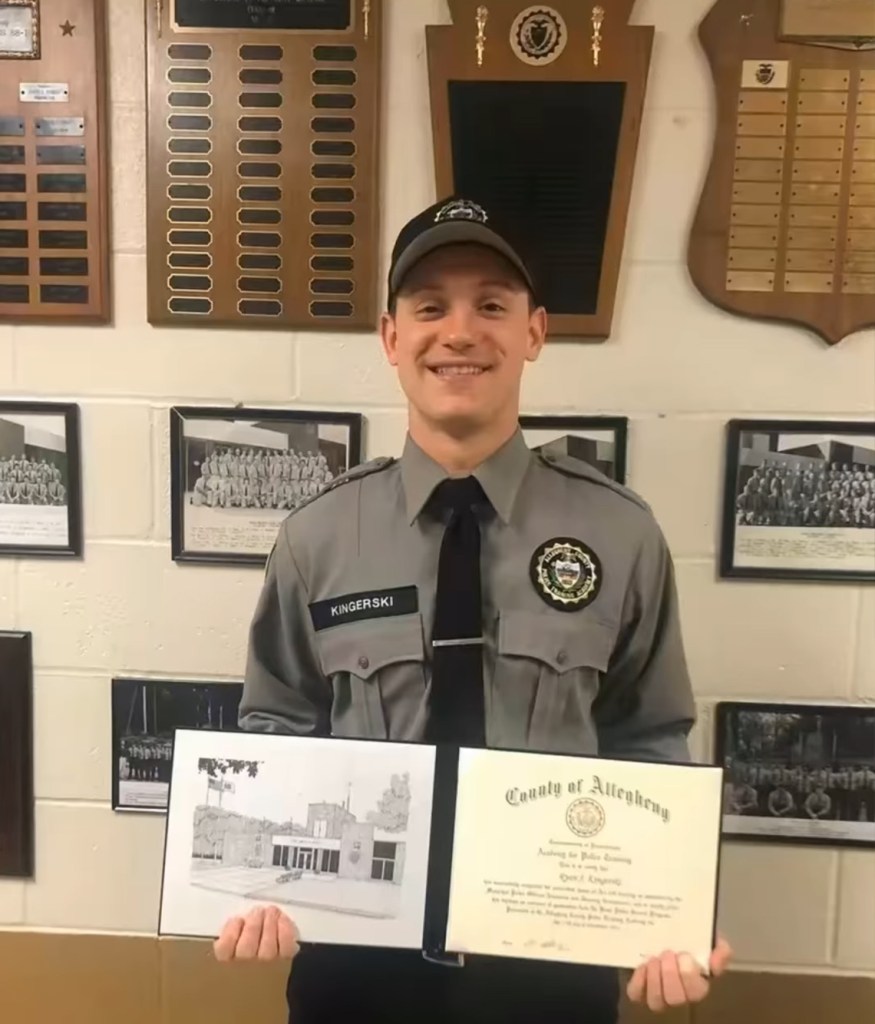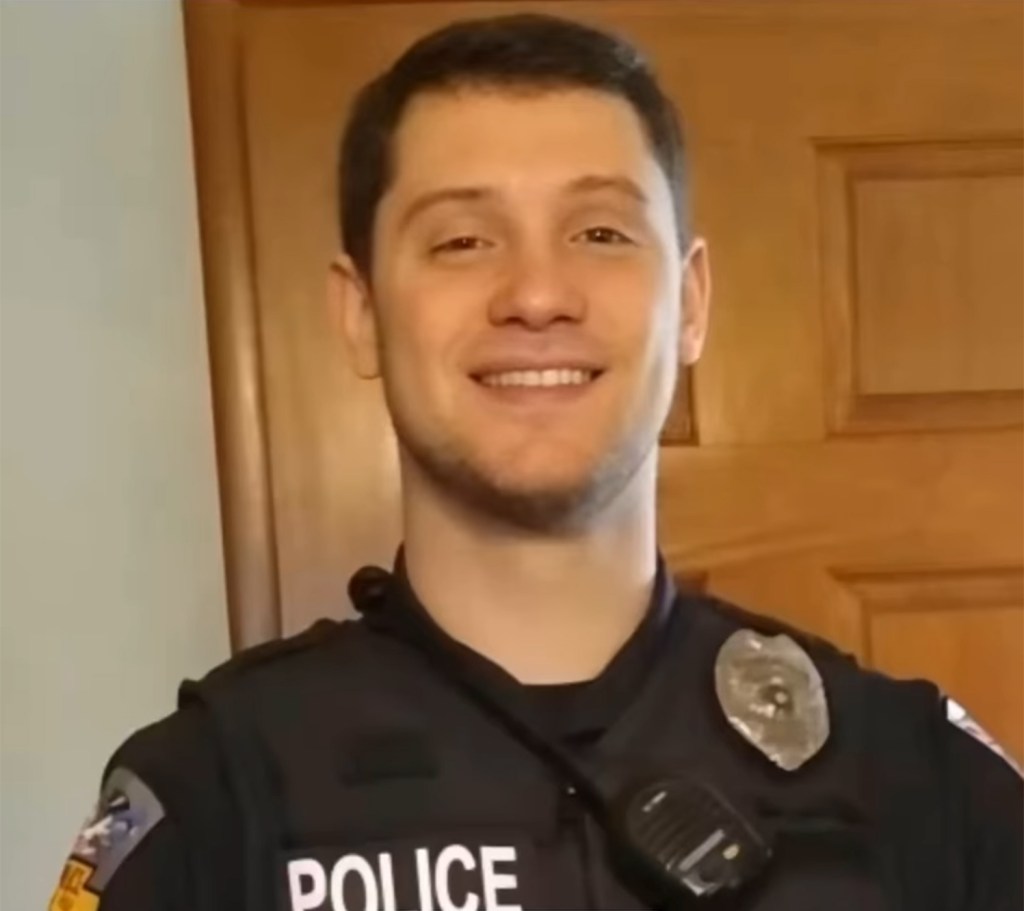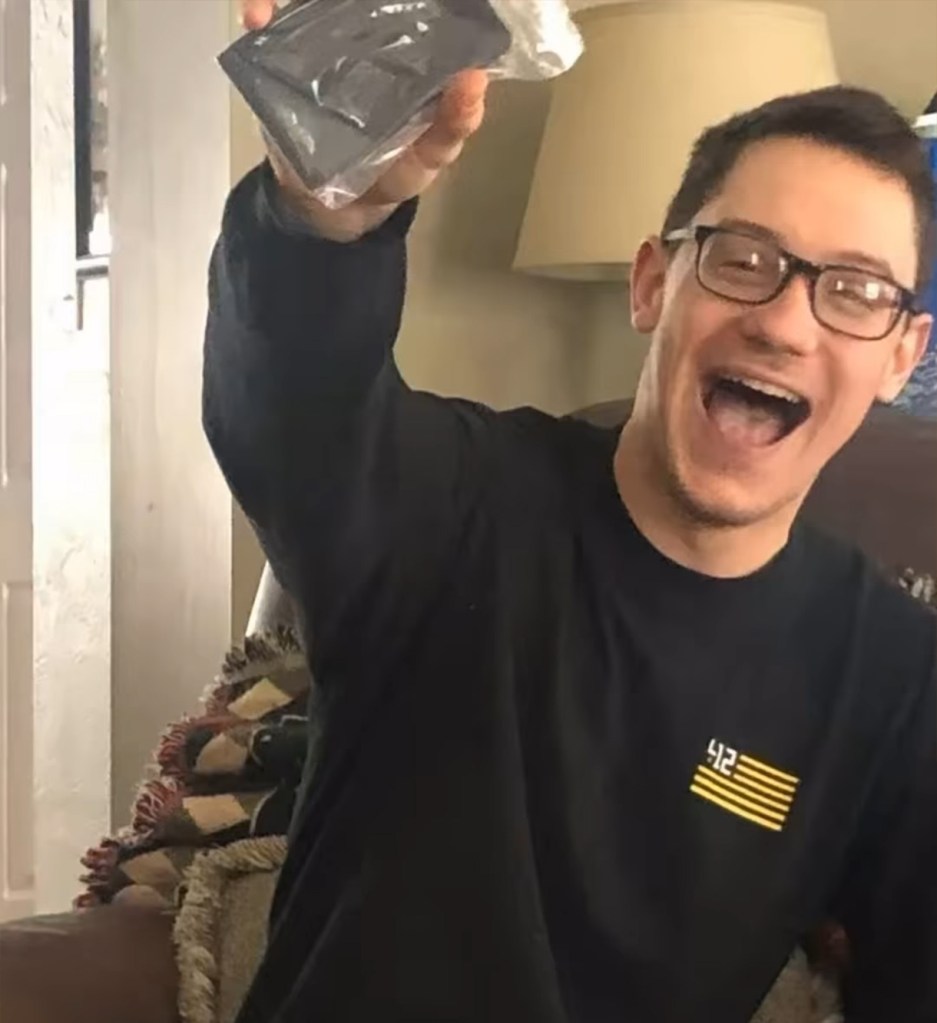A young Pennsylvania police officer took his own life after he suffered from side effects caused by elective eye surgery, according to his family.
Ryan Kingerski, 26, took time off from his job at the Penn Hills Police Department in August to undergo the popular eye surgery, LASIK, in hopes it would improve his vision, his grieving parents, Tim and Stefanie Kingerski, told CBS News Tuesday.
However, he began suffering from painful side effects, including headaches, double vision, seeing dark spots and floaters — tiny spots that appear as streaks or cobweb-like shapes across a person’s field of vision, they said.

His parents said their son was “full of regret,” and they tried finding specialists in hopes of locating some remedy to help with his pain, but nothing was helping.
The young police officer then killed himself in January — five months after the surgery.
“He left us a note that said, ‘I can’t take this anymore. LASIK took everything from me.’ That’s the note that we got left,” his dad told CBS News.
“That’s what we were left with,” his heartbroken mother added.
The cop was “witty, charming, smart” and had a passion for police work from a young age, his parents said. He followed in his father’s footsteps, and along with his twin brother Jacob, they both became cops.

When Kingerski eventually told his parents that he wanted to undergo the surgery, they said they were more worried about the dangers he faced on the street as a police officer.
“We had no thought of that,” his mother said, with Tim adding they believed LASIK was a “simple and effective, routine surgery” that would have him “back to work in a couple of days.”
However, their son never returned to duty.
“It just … it ruined his life. Ruined it. Completely ruined his life in 12 seconds,” Tim told WTAE News.

Kingerski’s parents said the pain of losing their son is unimaginable — and decided to share his story with others before they consider undergoing LASIK just as he would have if he were still alive.
“He didn’t want anyone else to ever feel the same way, and he wanted people to know the facts,” Stefanie said.
LASIK, which stands for “Laser-Assisted In Situ Keratomileusis,” was approved by the FDA for correction of refractive errors, such as nearsightedness (myopia), farsightedness (hyperopia), and astigmatism, in 1999.

The former head of the FDA branch responsible for reviewing data and approving LASIK decades ago, Morris Waxler, told WTAE News that the surgery was originally approved for 100 clinical trials, but he left the organization soon after.
He has since petitioned the FDA to withdraw its approval of LASIK over the years, but was denied.
Waxler also reiterated that Kingerski’s story should not be ignored.
“They cut nerves, then, in addition, they take out a divot, which removes all the support structure or muscle out of the support section and all of it,” Waxler said.

“Sometimes it grows back, sometimes it doesn’t grow back, sometimes it grows back poorly. For some people, it’s a bigger problem than others.”
It’s estimated that 700,000 to 800,000 people undergo LASIK surgeries every year in the US, according to the National Institutes of Health.
The rate of serious, sight-threatening LASIK complications is less than 1%, according to the American Refractive Surgery Council.

Kingerski’s parents still encourage anyone thinking about getting the surgery to do extensive research beforehand, and stressed anyone suffering with complications from LASIK to join support groups and reach out for crisis and suicide prevention services if they feel as their son did.
If you are struggling with suicidal thoughts or are experiencing a mental health crisis and live in New York City, you can call 1-888-NYC-WELL for free and confidential crisis counseling. If you live outside the five boroughs, you can dial the 24/7 National Suicide Prevention hotline at 988 or go to SuicidePreventionLifeline.org.
The post Pennsylvania cop died by suicide after suffering nightmare complications from Lasik eye surgery appeared first on New York Post.




